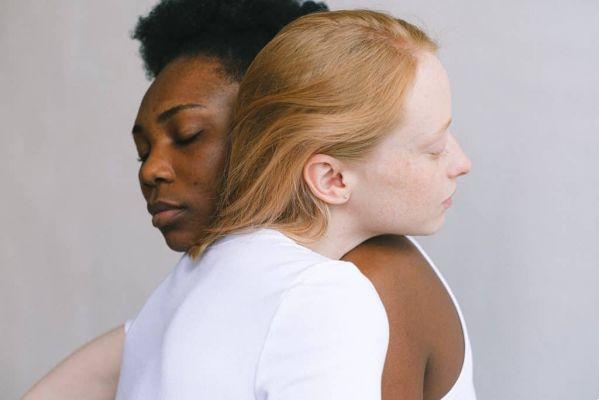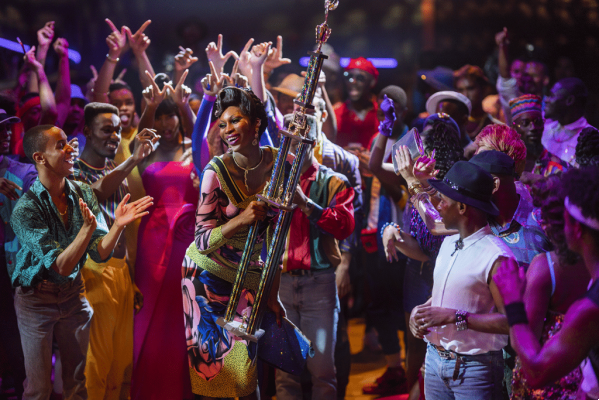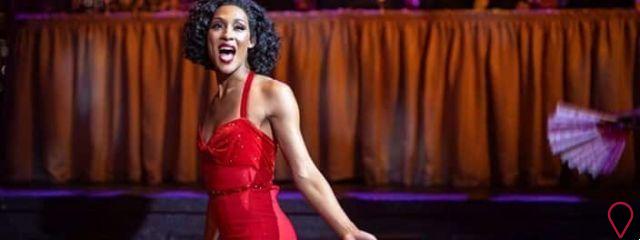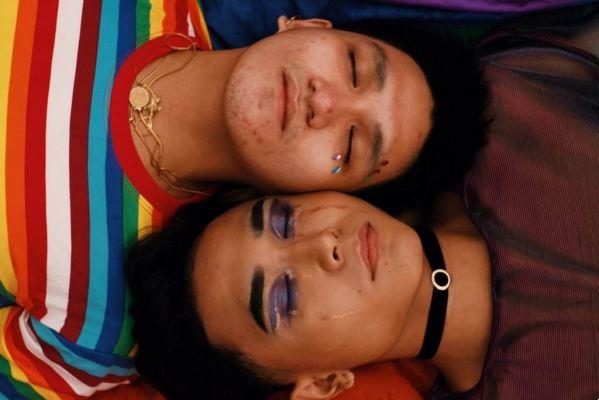“Pose” is the name of a series that was released in 2018 and is classified as a musical, although it features other genres in each episode, such as drama and comedy. The plot takes place in New York, in the late 80s, with a group of LGBT people who have been welcomed into a new home. Eventually, they attend lavish balls where they must strike poses to win competitions.
In addition to “Pose” being a series that addresses themes such as transsexuality, homosexuality, the rise of luxury culture and the reality of the 80s in an original way, the choice of the cast is innovative. In the entire history of television, “Pose” established itself as the first production to have transgender actors and actresses in large numbers.
The representation of the LGBT community is not only present in the choice of the cast. Instead of presenting these people in a caricature and disrespectful way, as many productions have already done, “Pose” shows us the conflicts, dreams and loves of these individuals in a charming script.
It is also essential to understand what lessons the series conveys in each episode. With emotional and strong scenes, we can dive into a universe that is so often forgotten on purpose by the media.
Family is not just blood
The most common conception we have of family is that it is formed from people who carry the same blood. The traditional family, therefore, is represented by a father, a mother and children. However, what happens is that the blood relationship is not always synonymous with acceptance, respect and unconditional love.

Evidence of this is the relationship of the characters in “Pose” with their own blood families. Because they belong to the LGBT community, many of them were kicked out of their homes by those who were supposed to protect them above all else. So who fulfills this role of family is the character Blanca, called mother by everyone she welcomed at home.
As in any family, Blanca and her children also face problems. They argue about the rules she has created, disagree on what she plans for each other, and often clash. But most importantly, she welcomes them, accepts them and believes in their potential, always encouraging them.
Therefore, the concept of family goes far beyond a blood relationship. In fact, it is what unites a group of people, in the same home or not, ensuring that each individual feels loved, protected, accepted and motivated to pursue their own dreams.
It is possible to fight for a better life
The LGBT community still faces marginalization around the world. Due to prejudice against different ways of being and loving, homosexual and transsexual people, for example, are excluded from society and lose job opportunities.
Because of this, many members of this community see no option but to submit to undervalued jobs, such as prostitution. One of the characters, Angel, receives encouragement from Blanca to abandon this reality and try a career as a model, as she has mastered the art of posing.

This is just one of the examples of scenes in which Blanca shows her children that it is possible to have a better life than the one they are leading. Another focus of the mother's attention is Damon, a young man who wants to be a dancer and, for that, he needs to dedicate himself to a rigorous training routine. Although he feels unmotivated at times, Blanca inspires him to keep going.
As each character develops, we learn that the LGBT community can have a different fate than what the LGBTphobic society assigns to it. It's not easy to fight discrimination, insecurity and the fear that everything will go wrong, but there is always someone to support our dreams and help us face any problem.
Taking care of your health is essential
A theme widely discussed in “Pose” is the care for one's own health that all people should have. The battle against drugs and AIDS, which was affecting much of the LGBT community in the late 80s, are two priorities for older characters like Pray Tell.

Pray's concern for the younger ones is due to the fact that he himself faces AIDS and has already lost many friends to the disease. So the series fulfills the role of making a campaign to prevent the virus, encouraging the use of male condoms during sexual intercourse.
As far as the drug fight is concerned, he is also present in the series. Blanca has made it a house rule that drugs are prohibited. When one of the characters breaks this rule, he is temporarily expelled from the dwelling. But the deeper reflection is visible when Angel uses cocaine, having difficulties to work and to live normally after that.
You may also like
- Learn more about being transgender
- Stand up against World Day Against Homophobia
- Find out if advertisements create or perpetuate stereotypes
- 21 Powerful Lessons Parents Should Teach Their Children
In this way, we observe that there is an effort of “Pose” to encourage people from the LGTB community to be attentive to their health. We all need to take care of ourselves, but society's prejudice against this audience makes these people believe that they have nothing left to lose, which is not true.
We're all posing
The series' name, "Pose", references two issues. The first of them is the action of posing for a photo or for a parade, representing what happens in the LGBT dances of that time. But another approach concerns the poses that we perform daily, when we wear masks so that society accepts us.
LGBT people receive so much hate from society that they may believe that being who they really are is not right. They feel that they must play a different role from their own essence, that only then will they be seen with more affection and respect by others.

In “Pose”, however, we see that LGBT people are also free to show their essence, to live authentically, to show the world the dreams they have, to love and to be loved. It is a revolution in the way of representing and understanding this part of society.
On the other hand, many individuals who are not part of the LGBT community still put on performances to look better at work, for example, or in a group of friends. In this sense, all people are subjected to poses at some point in their lives, but this imposition is more aggressive for those who do not follow the standards.
Considering each information presented, we observe that the “Pose” series is innovative in many aspects. With a choice of cast compatible with the characters presented by the production and with a respectful and original plot, the best quality of the series is the defense of the idea that LGBT people are worthy of living with good living conditions. Watch all the episodes and be enchanted!

























